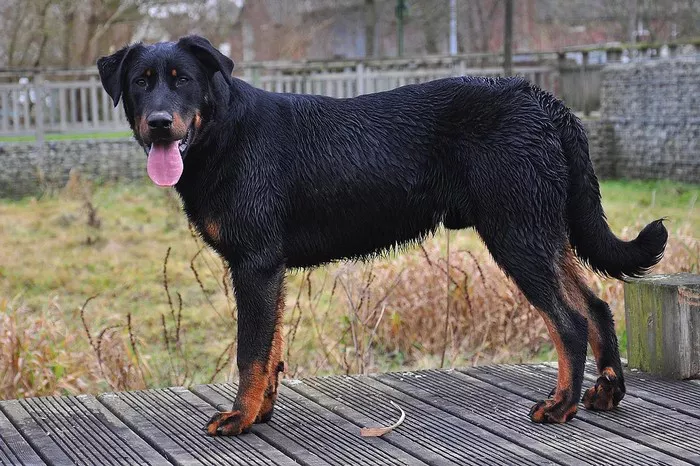In today’s world, the bond between humans and dogs has reached new heights. Gone are the days when dogs were simply loyal companions; now, they are treated like children. From blueberry facials to gourmet meals, more pet owners are going to extreme lengths to pamper their pups. But this trend of “dog parenting” is raising questions about whether we’ve crossed a line in our relationship with our pets.
The phenomenon of “dog guilt” has become a common experience for many dog owners. Much like the “mum guilt” felt by parents, it’s a pervasive sense of never doing enough for our dogs. We worry about whether they are getting enough attention, exercise, or proper nutrition. In fact, for some, the pressure to treat their dogs like babies has become overwhelming.
For me, this sense of guilt is ever-present. My dog, Muggles, is my little surrogate child, a role he has occupied since I first wrapped him in a baby blanket as a puppy. But my overwhelming sense of responsibility has only intensified over the years, especially since I’ve had children. At times, I feel I’ve failed him – he doesn’t look as polished as the Instagram-famous dogs, and I constantly wonder if I’m doing enough.
This “dog guilt” isn’t just a personal issue; a study from Eötvös Loránd University in Hungary reveals that 54% of dog owners now identify as “dog parents.” These individuals treat their dogs as pseudo-children, seeking a deep, emotional connection akin to that between a parent and child. This contrasts with other pet owners, who view their dogs more pragmatically – as companions or even colleagues, but not family members.
I’m far from alone in my dog-parenting approach. Celebrities like Paris Hilton and Emilia Clarke have made headlines for treating their dogs like royalty, from building miniature homes for them to baking custom cakes for their birthdays. And the trend isn’t limited to the rich and famous. In the UK, the luxury dog market has exploded in recent years. Owners now shop at pet boutiques, send their dogs to spas for facials, and even take them out for meals at dog-friendly cafes.
Jenny Matthews, founder of a luxury dog brand, explains that this shift isn’t entirely new. “Many dog owners have always secretly treated their dogs like children,” she says, “but in recent years, the market has caught up with their desires.” As a result, dogs are now getting the kind of care once reserved for human children, including organic meals and premium grooming services.
The shift toward dog parenting is not confined to the wealthy, though. According to recent statistics, approximately 36% of UK households own a dog, and for many, their pets have become integral parts of the family. The late Queen Elizabeth’s devotion to her Corgis is a perfect example. She would fill their Christmas stockings herself, and at night, they slept in specially designed wicker baskets to keep them warm and comfortable. But as the trend grows, it raises the question of whether we are overindulging our pets at the expense of their well-being.
One such example is Kim Bush, a London-based hair colorist, who confesses to mollycoddling her dog, Bale, a Jack Chi. Her guilt over leaving him alone while she worked became so intense that she set up cameras in her home, only to feel worse after seeing him lying alone on the bed. She admits to overcompensating by dressing him in clothes and preparing homemade meals, and even considered quitting her job to become a full-time dog walker. Her sense of guilt intensified when Bale fell ill due to stress, which she blamed on her actions.
While it’s easy to assume that it’s mostly childless women who over-empathize with their pets, the trend spans all demographics. Even parents feel the pressure to treat their dogs as children. Dr. Ellie Lee, a professor at the University of Kent, explains that the guilt parents feel about their children has been magnified by societal pressures since the 1970s. “Cultural messages tell us that everything we do as parents will shape our children’s futures, and it’s possible that these same anxieties are being projected onto dogs,” she says.
However, not everyone believes this trend is healthy. Dr. Nicky Shaw, a clinical animal behaviorist, warns that overindulging pets can lead to confusion and miscommunication. While it’s important to recognize and care for a dog’s emotional needs, she cautions against anthropomorphizing our pets. “Dogs should be treated like dogs,” she says, “not babies. This is the best way to avoid dog guilt and ensure that we meet their real needs.”
Experts like Roger Mugford, a leading animal behavioral specialist, agree that the rise of “dog parenting” is a reflection of changing attitudes. While some degree of emotional connection is beneficial, he stresses that dogs are not children and should be treated as the unique animals they are.
Ultimately, my own experience with Muggles has shown me that dogs are resilient creatures, capable of thriving with a balanced relationship. It’s time to let go of the unrealistic expectations of being the “perfect dog parent” and recognize that our dogs are happy just being dogs.
Related topics:
From Abandoned Puppies to Police Heroes
Family Appeals for Help to Find Missing Collie, Forrest
Missing Dachshund Found at Oregon Airport After Days of Search


